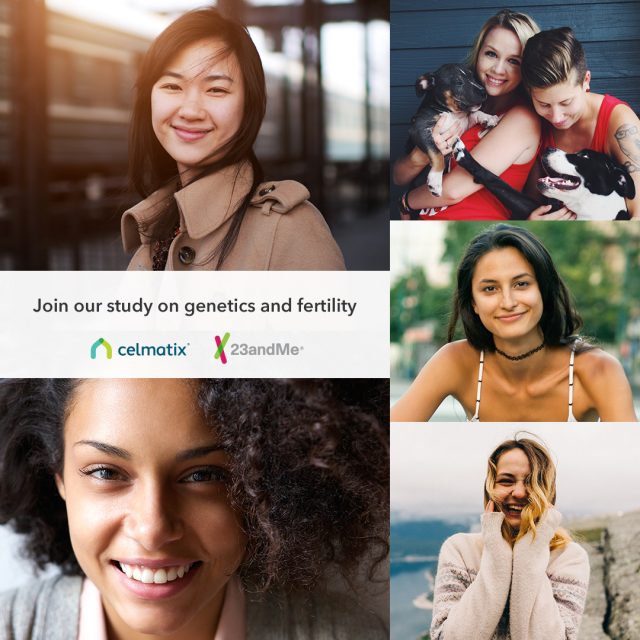
February 22, 2017
Editor’s note: This post first appeared on the 23andMe main blog.
Women today often make decisions about their fertility largely based on age, but research has shown that environment, lifestyle, and genomics can also impact a woman’s ability to conceive.
A new Fertility Research Community launched by the next-generation women’s health company Celmatix, and 23andMe, will use genetic and other data to uncover more on what impacts a woman’s ability to conceive.
“This ambitious initiative will bring us closer to enabling any woman, who may want to have a child one day, to better understand how decisions about lifestyle, diet, and when to start building a family may impact her ability to have as many children as she wants given her underlying genetics,” said Celmatix founder and CEO, Dr. Piraye Yurttas Beim.
As any mother can attest, every pregnancy is different. Some women conceive right away, but for many others it isn’t so simple. According to the Centers for Disease Control and Prevention, one in eight women trying to conceive will have trouble getting pregnant, and currently, doctors have limited tools to help.
The aim of the Fertility Research Community is to uncover findings that can help both women trying to conceive and their doctors. This research community will enlist participation from 4,500 women between the ages of 18-and-45 who have recently had a baby, who are pregnant, or are trying to conceive. Then, over an 18-month period, scientists will look not just at genetic data from those participants, but also track clinical information, environmental data, details about diet, and lifestyle choices. Feeding that data into their research model, the scientists will also look at outcomes, tracking the success or failure of women trying to conceive.
It’s a study that leverages strengths from both companies — Celmatix, empowering women with data and genomic insights to make proactive decisions around their fertility; And 23andMe, which pioneered the kind of big-data genetic research that enlists and engages people to participate. In this case, both companies are reaching out to mothers and would-be mothers to become involved, and pointing out that their participation now could help other women who want to start a family in the future.
“Many women experience fertility challenges, which can be devastating,” said Emily Drabant Conley, PhD, vice president of business development for 23andMe. “We believe this study has the potential to impact their lives and help them in their journey. And what we learn could also help other women, early on, as they to plan to start families of their own. What we discover by leveraging this data could help inform all women managing their fertility potential.”
To learn more details about our fertility study, go to our study information page.